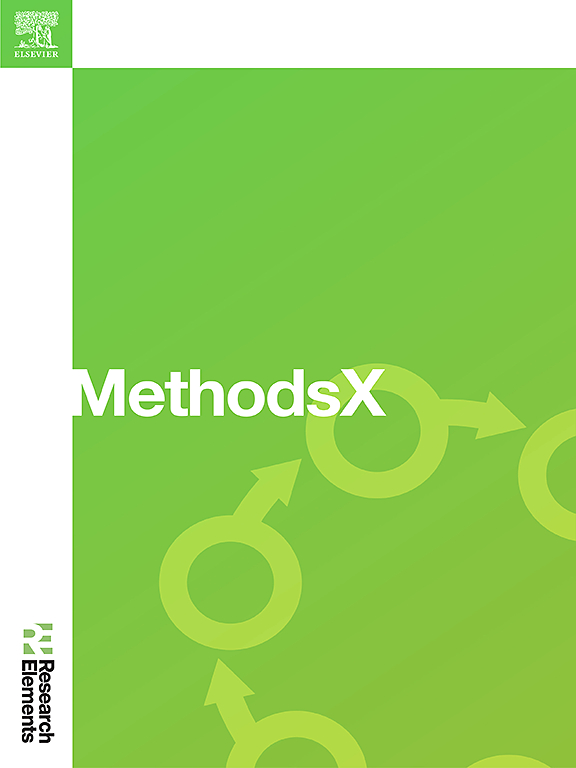Analysing learning behaviour: A data-driven approach to improve time management and active listening skills in students
IF 1.6
Q2 MULTIDISCIPLINARY SCIENCES
引用次数: 0
Abstract
Learning behavior refers to the actions, attitudes, and strategies individuals employ when acquiring new knowledge. Time management is a perennial challenge in modern life, where individuals often juggle multiple responsibilities and commitments. Active listening is an indispensable skill in both educational and interpersonal contexts. Methodologically, the study began with comprehensive data collection through a survey, data preprocessing tasks and feature selection, followed by training and evaluating predictive models using various ML algorithms. With concerns rising over student failures, we conducted a survey with 350 participants, utilizing Google Forms. After testing multiple ML models with datasets, Random Forest was determined to be the most dependable model by emphasizing algorithms. It demonstrated remarkable durability (0.811012) and accuracy during cross-validation. The significance of addressing the effective abilities that students should absorb and the possibility of ML approaches in comprehending and reducing its negative impacts on academic success are both highlighted by these findings. By analyzing learning behavior, researchers and educators can gain insights into effective learning strategies, identify barriers to learning, and develop interventions to support learners in achieving their educational goals. The findings emphasize the pivotal role of non-cognitive skills like time management and active listening in fostering academic achievement.
- •Significance of Non-Cognitive Skills: The study underscores the critical role of non-cognitive skills, such as time management and active listening, in fostering academic success and overall learning effectiveness.
- •Survey and Dataset Analysis: The survey, conducted with 350 participants using Google Forms, provided valuable data for training models and highlighted challenges like student failures, which can be addressed through predictive analysis.
- •Impact on Academic Success: By analyzing learning behaviors and identifying barriers, the findings emphasize the potential of machine learning approaches in understanding and mitigating factors that negatively affect academic performance.

分析学习行为:一种数据驱动的方法,以提高学生的时间管理和积极倾听技能
学习行为是指个人在获取新知识时所采取的行动、态度和策略。在现代生活中,时间管理是一项长期存在的挑战,个人往往要兼顾多重责任和承诺。积极倾听是教育和人际交往中不可或缺的技能。在方法上,研究首先通过调查、数据预处理任务和特征选择进行全面的数据收集,然后使用各种 ML 算法对预测模型进行训练和评估。随着人们对学生不及格问题的日益关注,我们利用谷歌表单对 350 名参与者进行了调查。在使用数据集测试了多种 ML 模型后,随机森林算法被认为是最可靠的模型。在交叉验证过程中,它表现出了卓越的耐用性(0.811012)和准确性。这些发现凸显了解决学生应吸收的有效能力问题的重要性,以及数学方法在理解和减少其对学业成功的负面影响方面的可能性。通过分析学习行为,研究人员和教育工作者可以深入了解有效的学习策略,识别学习障碍,并制定干预措施,以支持学习者实现其教育目标。研究结果强调了时间管理和积极倾听等非认知技能在提高学习成绩方面的关键作用:研究强调了时间管理和积极倾听等非认知技能在促进学业成功和整体学习效率方面的关键作用:使用谷歌表单对 350 名参与者进行了调查,为训练模型提供了宝贵的数据,并突出强调了学生失败等挑战,这些挑战可以通过预测分析来解决:对学业成功的影响:通过分析学习行为和识别障碍,研究结果强调了机器学习方法在理解和减少对学业成绩产生负面影响的因素方面的潜力。
本文章由计算机程序翻译,如有差异,请以英文原文为准。
求助全文
约1分钟内获得全文
求助全文
来源期刊

MethodsX
Health Professions-Medical Laboratory Technology
CiteScore
3.60
自引率
5.30%
发文量
314
审稿时长
7 weeks
期刊介绍:
 求助内容:
求助内容: 应助结果提醒方式:
应助结果提醒方式:


